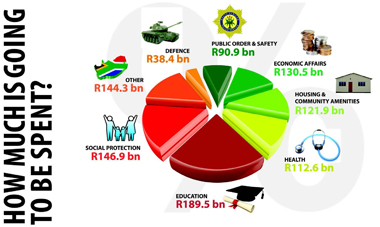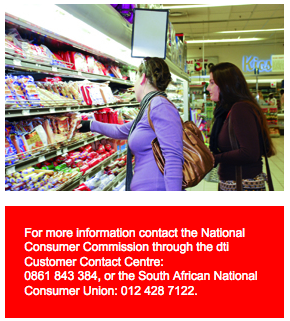Mar 2011
Mar 2011 Estelle Greeff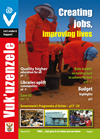
Letters to the Editor - Give us a piece of your mind
Letters to the Editor - Give us a piece of your mind sadminWinning letter: Let's end road rage!
I am very disappointed by the way we as South Africans are behaving on our national roads. If you are involved in an incident where someone drives recklessly, do not try to take revenge. If an accident was not caused when driving recklessly, do not cause it yourself by acting out in anger.
 A small driving mistake can cause an accident that may take the life of a precious brother or sister. If other people drive recklessly near you, don't get angry, just calm down and regard it as a mistake. Don't make it worse with road rage!
A small driving mistake can cause an accident that may take the life of a precious brother or sister. If other people drive recklessly near you, don't get angry, just calm down and regard it as a mistake. Don't make it worse with road rage!
- Sello Matlhatji, Hammanskraal, Gauteng
Encourage adult literacy
Government has produced Kha ri Gude – Let us Learn – to help illiterate people. Dear friends, everyone can learn to read and write. Please encourage your illiterate parents, neighbours and friends to learn. There are no fees, and the study material is free.
– Ramakgahlela Dorris, Mashite, Ga-Mphahlale, Limpopo
Use your talents indeed
The letter about using your talents that was published in Vuk'uzenzele magazine recently, reminded me that I have an aptitude for being a businessman. So I started a small business of selling cigarettes; I even opened an account to save my money. I know my business will one day grow and will be registered so that I will be able to contribute to the economy of our country and create job opportunities in my community. Thank you, Vuk'uzenzele, you are the best magazine I've ever seen. Keep it up!
– Khakhau Sedikanelo, Slovo Park, Qwaqwa, Free State
Fight poverty and crime with education
One of the main reasons for poor results in rural schools is that we lack many things. For example, English is one of the subjects which is not taught well from lower to higher grades. Also, there are no solid foundations, we don't have text books, there's a lack of career guidance, school buildings are not fit as places for teaching learners and there are no sponsorships for bursaries from our towns and cities to motivate rural students to work harder.
We do want to study at good schools in cities and towns, but we lack transport. So, please Minister, we want to see developments which will make our schools known for better education
Reply from the Editor: Education and rural development are among government's key priorities for the next five years. Government is looking at ways to address education challenges in the Eastern Cape and has established the National Education Evaluation Unit to ensure that the schooling system is effectively monitored and evaluated.
Life is a surprise
We often ask ourselves why our lives take a different path from what we expected. The answer is simple – it is because life is actually a surprise, not a planned strategy.
If we knew what life had in store for us, we would try hard to turn things around, which would be wrong, because we learn from our mistakes and they make us the people we are. So appreciate the surprises life throws at you and love your life the way it is, because you only live once.
– Mokhabuki Godwin, Tzaneen, Limpopo
There's nothing to gain from alcohol
I really can't stand what alcohol changes people into; it has ruined my relationship with someone very very close to me. To all the youth, fathers and mothers who are abusing alcohol, just ask yourself this question: "What am I gaining from alcohol?" There is nothing to gain, but everything to lose.
– Khamadi Joseph, Allanridge, Free State
Take action against drugs
The President in his State of the Nation Address, made the important statement that drug and alcohol abuse is tearing families, communities and the country apart. We can all relate to this in one way or another. He called on the police and the nation not to tolerate drug selling and peddling and most importantly, not to tolerate the selling of alcohol to under-aged children. All of us should heed this call and direct more energy to take action against this evil.
– Moses Gama, Katlehong, Gauteng
Piracy destroys our entertainment industry
South Africa has a huge number of talented people who can sing and act. They have the ability to keep other people entertained and educated and they need to get an income for the good work they do. But we see too many people copying these artists' work instead of buying it. It is extremely expensive to produce a film or music. Let us help our singers and actors by ceasing to copy their work and selling it at cheaper prices to the public. It is against the law to copy somebody's work without permission and it is called piracy! Together we must stop this to keep our entertainment industry alive and raise it to a higher standard.
– Mosotho Thabo, Meqheleng, Ficksburg, Free State
Misuse of grants
It is depressing to realise that so many people do not appreciate what government is doing for them. I have seen how the foster care grant has been misused both by the kids that receive them and the foster parents that raise these children.
The money has become a ticket for the children to go out and enjoy themselves until the wee hours of the morning. The foster parents, on the other hand, forget why they are receiving this money and neglect these children that help them have food on the table and clothes on their backs.
People don't want to look for employment anymore; instead they look for orphans to get rich with by pretending to take care of them. I think it's time the government rethinks all these grants, because misusing them is destroying our people and the future of our children.
– Busi Mbiyo, Grahamstown, Eastern Cape
WRITE TO:
Vuk'uzenzele, Private Bag X745, Pretoria, 0001, or e-mail: vukuzenzele@gcis.gov.za.
If you don't want to have your real name published, you may use a different name, but you must include your real name and address in your letters to us. Some letters are edited and shortened for publication due to a lack of space.
PLEASE NOTE:
To win a prize, you must include a physical address and a contact telephone number in letters to us.
Prizes that are not claimed within 90 days, will be forfeited.
Quality higher education for all
Quality higher education for all sadminBursaries
Government is committed to provide quality education to tertiary students, including students with disabilities. To help make this goal a reality, the National Student Financial Aid Scheme (NSFAS) has received a boost of R150 million.
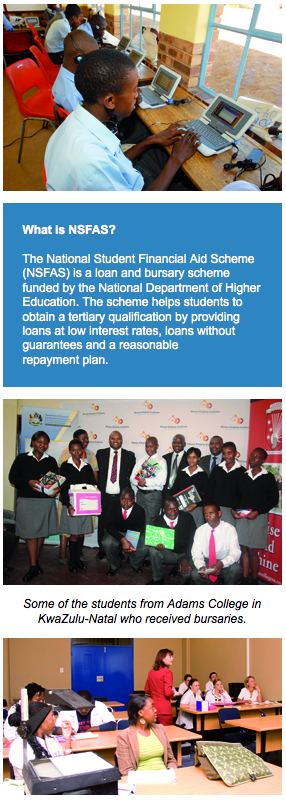 The Department of Higher Education and Training, through the National Skills Fund (NSF) has set aside R22,9 million to fund 820 first-year students. Of this amount, R7 million will go towards a special bursary scheme for rural students who have done exceptionally well in the 2010 matric exams.
The Department of Higher Education and Training, through the National Skills Fund (NSF) has set aside R22,9 million to fund 820 first-year students. Of this amount, R7 million will go towards a special bursary scheme for rural students who have done exceptionally well in the 2010 matric exams.
Disabilities
Government has also made it a priority to promote access to tertiary education for people with disabilities. To this end, the department has set aside R21 million for 300 first-year students with disabilities. Some of the money will also be used to fund students who are already studying scarce skills.
In addition, the NSF will allocate R100 million towards Career Wise
bursaries. These will be granted in the following categories:
- R21,6 million to fund 258 first-year student bursaries,
- R4 million for the Dipaleseng Special Bursary Scheme
- R11,5 million to support 245 first-year students who are studying Chartered Accounting at the University of Fort Hare.
Under-privileged learners
Hard working students from disadvantaged families, will this year be exempted from paying academic fees. This will assist under-privileged learners to get access to Further Education and Training (FET) colleges, which, in turn, will help meet the country's need for technical skills.
Good results
Bursaries will be allocated to students whose parents earn a combined salary of R122 000 per year or less. The bursary will cover tuition fees, accommodation, meals and transport costs.
However, learners who receive these bursaries must keep in mind that the department will monitor students' progress. They will be expected to work hard and produce good results. Those who continue to fail and produce poor results, will lose their bursaries.
Career guidance
Government also plans to address the shortage of career guidance in schools. It aims to ensure that career-related information will be available in rural schools and that all learners will have access to such information.
To assist the department, the South African Qualifications Authority (SAQA)has joined forces with the SABC to provide learners with
information on career guidance. The career information will be broadcast on all Nguni radio stations to reach a wider audience.
Bursaries to boost science and technology skills
As a part of providing Science and Technology skills to historically disadvantaged learners, more than 100 learners from the Adams College in KwaZulu-Natal received bursaries. The bursaries were awarded by the Department of Economic Development and Tourism in co-operation with the Moses Kotane Institute of Science and Technology.
Students who received bursaries will be studying for careers involving Mathematics and Science this year.
Apart from the bursaries, the department also donated two fully furnished classrooms. This is in accordance with one of government's identified key priorities, to provide quality education to all learners.
More information
To find out how to apply for a bursary, call the Career Advice Help-line on: 0860 111 673. You can also visit the Career Advice website at: www.careerhelp.org.za
A post-school options information pack is also available at the Career Advice website. If you have an e-mail address and
would like the information pack to be emailed to you, you can request the pack from the Career Advice Helpline or visit
www.careerhelp.org.za
For more information on NSFAS bursaries, call 021 763 3232.
Discover a wealth of information
Discover a wealth of information sadminLibrary Building Programme
Improving access to public libraries for communities throughout South Africa is the driving force behind the Department of Arts and Culture Library Building Programme.
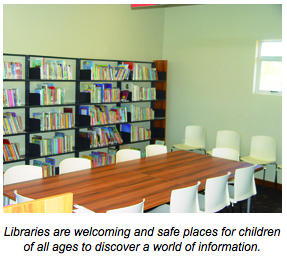 Libraries are vital for the upliftment of communities. They provide a wealth of information through books ranging from those with advice on how to cope with personal problems, to those containing academic information for study and learning purposes.
Libraries are vital for the upliftment of communities. They provide a wealth of information through books ranging from those with advice on how to cope with personal problems, to those containing academic information for study and learning purposes.
Libraries also promote a culture of reading and help people to increase their knowledge by learning about the rest of the world and other cultures.
Upgrade
As part of the Library Building Programme,more than 115 libraries have been upgraded and 15 new libraries have been built countrywide.
To this end, six libraries have been upgraded and completed in the North West Province, five in the Western Cape, two in the Eastern Cape, one in Gauteng and one in Mpumalanga.
In Limpopo, six new libraries were built in Thulamela and Fetakgomo municipalities. In the Northern Cape, six libraries were built in Barkley West and Hartswater.
Equipment
Many libraries received new furniture, equipment and computers, as well as new library material such as books, magazines and audio-visual material. Infrastructure has been upgraded and Internet access in various communities has improved. New staff have also been appointed and trained.
Currently, 19 new library projects are underway in the following municipalities: Tugela Ferry in Msinga, Imbabazane, KwaDukuza and Ndwe-dwe, Malangeni in Umdoni, Ezinqoleni and King Dinizulu in Umlalazi and Kwa Ndwalane on the Hibiscus Coast.
Rural areas
The new library being built at Tugela Ferry in Msinga is a fine example of the department's drive to address the need for libraries in rural areas. The library is due to be completed and handed over to the Msinga Municipality this year.
The department has funded the full building cost, as well as professional fees, furnishing and equipment, including books and other library material totalling over R2,5 million.
Promoting a culture of reading
There are different kinds of libraries in the Library and Information Services sector. They include national libraries, public or community libraries, special libraries, government libraries and higher education libraries.
The main goal of libraries is to develop human capital, eradicate illiteracy and to promote a culture of reading. Libraries are not only fun places to visit but are also places of opportunity and discovery.
The department's Provincial Library Service provides a variety of library material including books, magazines and audiovisual material such as music, DVDs and videos for public use. These libraries are built by the province in local municipalities and serviced on an ongoing basis by the Library Services. The local authority provides staff to run the libraries.
In 2009, the department created a Library Transformation Charter. In line with this charter, an amount of R1 billion has been set aside to be used over a period of three years to revitalize, improve and transform the country's community libraries.
Library helps dreams come true
Library helps dreams come true sadminLibrary Building Programme
Thanks to the King Dinizulu Library, which was recently opened by the KwaZulu-Natal Department of Arts, Culture and Tourism, learners in the community of Eshowe can now realise their dreams of following their chosen careers.
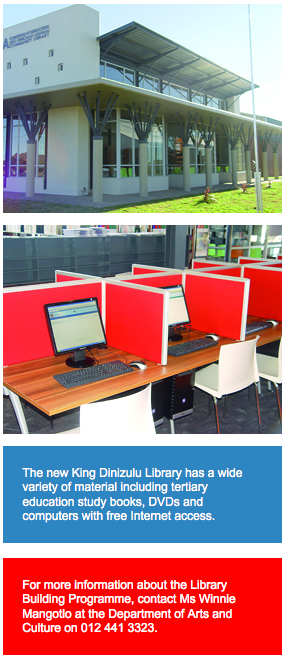 While most schools in the surrounding areas do have libraries, they don't have enough books and computer resources for all the learners. The new library has a wide variety of books including tertiary education books, as well as DVDs and computers with free Internet access. The library also has a meeting room and a spacious studying area.
While most schools in the surrounding areas do have libraries, they don't have enough books and computer resources for all the learners. The new library has a wide variety of books including tertiary education books, as well as DVDs and computers with free Internet access. The library also has a meeting room and a spacious studying area.
Wealth of possibilities
Community libraries are welcoming and safe places for children of all ages to find information. Since the library opened its doors, learners and community members have flocked in to discover the wealth of possibilities it offers.
Learners and students from neighbouring communities use the library for school projects and tertiary education assignments. It also helps them to choose career paths for the future. Children are encouraged to visit the library and improve their education instead of becoming involved in criminal activities.
All other members of the community, including the elderly, are also welcome.
Community needs
The Department of Arts and Culture in the Umlalazi Municipality supports five libraries at Eshowe, Gingindlovu, King Dinizulu, Mtunzini and Sunnydale.
The King Dinuzulu Library received books and other library material to the value to R1,5 million from the Regional Library Depot in Pinetown. This stock will constantly be refreshed and updated to meet the needs of the community.
All are welcome
All members of the community may use community libraries free of charge. Parents are therefore urged to encourage their children to make use of libraries. No matter what age you are, you will find books to suit your needs and interests.
No holding back to achieve his best
No holding back to achieve his best sadminRole model
For most young teenagers, the world after completing high school is filled with uncertainties about their future careers. But 17-year old Funanani Munzhelele was determined to achieve his dream of studying Mechanical Engineering, despite being disabled. Always doing his best, was his path to achieving the best.
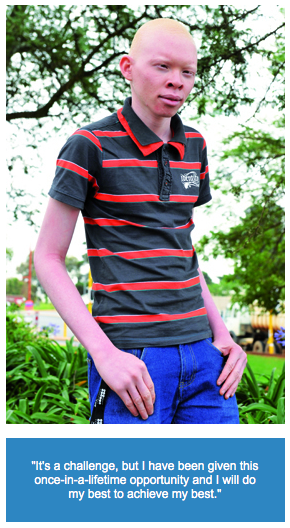 Funanani is not like most other teenagers his age; he is affected by albinism. People with albinism have little or no pigment in their eyes, skin or hair. Due to this lack of pigment, called melanin, their skins are very light and many parts of their bodies are affected, including their eyesight.
Funanani is not like most other teenagers his age; he is affected by albinism. People with albinism have little or no pigment in their eyes, skin or hair. Due to this lack of pigment, called melanin, their skins are very light and many parts of their bodies are affected, including their eyesight.
But Funanani has not allowed albinism to stand in his way. He has always been determined to do his best and has managed to reach the top of his class exceeding all his teachers' expectations despite the stumbling blocks.
Exceptional student
Regardless of his disability, Funanani was named a top matric learner in 2010 in the Tshwane West district after obtaining five distinctions, including a 90 per cent pass in Mathematics. Thanks to to his outstanding performance, the Department of Public Works awarded a bursary to Funanai to study Mechanical Engineering at the University of Johannesburg.
School principal Willem van der Merwe says Funanani is an exceptional and hard-working student. He reached the top because he doesn't allow anyone or anything to stand in his way.
Funanani has done his family and his community very proud. He encourages all young teenagers, to work hard and to believe in themselves. "If you do this, you will achieve your goals," he said.
Loving family
Funanani said he was very fortunate to be raised by a loving family in Limpopo. His Dad, Shumani, who is an educator, and his mother, Mercy, who works as a local security guard, never made him feel different and sent him to a normal school.
"I was so excited to go to a normal school and I made lots of friends, but I had to sit right at the front of the class because I struggled to see the blackboard."
Top of the class
The family noticed Funanani's eyesight deteriorating from a young age. When his parents realised that this was starting to affect his schoolwork, they decided to enrol him at the Filadelfia Secondary School in Soshanguve for children with disabilities.
In this environment where he could relate to other students with similar learning difficulties, he excelled in his school work. With smaller classes and individual attention from teachers, Funanani was soon top of his class in all his favourite subjects. These included Physical Science, Mathematics, Engineering, Mechanical Technology, Graphic Design and Tshivenda.
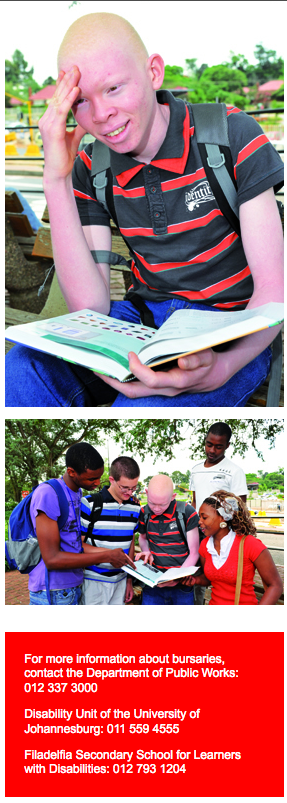 Inquiring mind
Inquiring mind
Funanani said his love for electronics started from a young age. His dad, Shumani, said as a young child, he was always trying to take things apart and would then try to rebuild them himself. "His inquiring and bright mind was always on the go," said Shumani.
Aside from all things mechanical, Funanani loves chess, cricket and golf. He had a chance to play blind cricket and loved to bowl. But he admits he really loves golf and hopes to become a regular golfer one day.
Extra mile
Funanani said he managed to obtain excellent results in his matric exams through hard work and support from dedicated teachers and loving parents. He put in extra study time and was always taking notes and asking questions in class. The support and guidance he received from his mentors, the school's Mechanical Technology and Mathematics teachers, helped him to perform at his best. When you have that kind of support, the sky is the limit he said.
"They really helped me a lot and went the extra mile to make sure I understood everything despite my disability," said Funanani.
Disability Unit
Funanani is now a first-year student at the University of Johannesburg. He has been thrown into a world where he is up against able-bodied students, but with help from the University's Disability Unit, he is getting extra guidance.
Funanani goes to classes early and always sits at the front where he is able to take notes and ask questions during lectures. He enjoys the challenge of studying and his goal is to become a successful Mechanical Engineer.
Travel
Funanani loves to travel. He would love to see the world and especially his favourite place, Japan, "the most advanced country in technology."
Being the oldest child in his family, he has to be a role model to his younger siblings, said Funanani. "They need to know that with hard work they can overcome any obstacle and achieve great results in school."
Receiving a bursary was a dream come true he said. "It is such a weight lifted off my parents' shoulders. Getting a tertiary education is very expensive and is a financial burden on many parents. I am so grateful that my parents don't have to suffer and that I'm getting a great education."
An ID holds the key to your future
An ID holds the key to your future sadminApply for an ID now
An identity document (ID) holds the key to your future. It is required when you write your examinations, apply for further study or enter the job market. It is also essential when opening a bank account, applying for loans or acquiring assets. Learners who are completing Grade 12 or who are turning 16 this year are therefore urged to apply for their ID as soon as possible.
 The Department of Education, together with Home Affairs, has launched a campaign to encourage all learners to start the process of applying for IDs now. This will avoid the last minute rush before their final exams. Officials from the Department of Home Affairs will visit schools in all provinces to assist students to complete application forms for their IDs. Learners in Grade 12 who do not have IDs and learners turning 16 in 2011 will be able to apply for their IDs through the campaign.
The Department of Education, together with Home Affairs, has launched a campaign to encourage all learners to start the process of applying for IDs now. This will avoid the last minute rush before their final exams. Officials from the Department of Home Affairs will visit schools in all provinces to assist students to complete application forms for their IDs. Learners in Grade 12 who do not have IDs and learners turning 16 in 2011 will be able to apply for their IDs through the campaign.
Parents are encouraged to help their children to apply for their IDs at their nearest Home Affairs offices.
Part of the preparations for your final examinations later this year, is to ensure you are in possession of a green bar coded identity document.” said Home Affairs Minister, Dr Nkosazana Dlamini Zuma.
Call centre
To apply for your ID, you will need your birth certificate and two ID-sized photographs of yourself. A 24-hour call centre has been established to assist matriculants with applications for their IDs.
Learners who have already applied for their IDs, but have not yet received them can also phone the call centre to track progress. When making inquiries, matriculants wishing to track the progress of their ID applications, must provide the following:
- their full names, surname and identity number as it appears on the birth certificate
- an examination number
- an examination centre number
- a contact telephone number.
Mpumalanga gets more no-fee schools
More than 460 schools were declared no-fee schools in Mpumalanga this year. This means that parents whose children attend these schools do not have to pay any school fees. The Department of Education increased the number of no-fee schools from 952 last year, to 1 416 this year to help parents who struggle financially and cannot afford to pay school fees.
Education spokesperson for Mpumalanga, Jasper Zwane, said 75 per cent of the province's schools were now no-fee schools. Schools in Manyeleti, White River, Middelburg, Piet Retief, Emalahleni and Bushbuckridge are among the newly-named no-fee schools.
To ensure the smooth transition of the schools, government officials visited the new no-fee schools. The schools have received their learner material and lessons have commenced successfully. Parents were overjoyed and relieved that their children could continue schooling without paying school fees.
For more information, contact the call centre on: 0800 601190 or 0800 204476. You will receive an SMS informing you when to collect your ID
Putting your child's health first
Putting your child's health first sadminSchool Health Screening Programme
Government has pledged to put the health of school children first by rolling out the School Health Screening Programme. The programme brings basic health screening to learners at schools in areas that have been identified as priority health districts. These include schools in areas least likely to have access to health care services. The Department of Health, in partnership with the Department of Basic Education, is currently conducting basic health screening for Grade 1 and foundation phase learners.
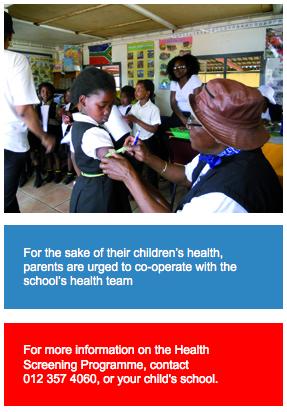 Phase one of the School Health Screening Programme kicked off during School Health Week, in the beginning of March. Phase two will take place in October. The programme will test the eyesight, hearing and basic oral health of learners in Grade 1 and the foundation phase.
Phase one of the School Health Screening Programme kicked off during School Health Week, in the beginning of March. Phase two will take place in October. The programme will test the eyesight, hearing and basic oral health of learners in Grade 1 and the foundation phase.
Seven provinces will be participating in the School Health Week. Health Screenings in the Western Cape have been postponed to a later date due to an outbreak of measles in the province. A mass immunisation programme has been implemented. Screenings in KwaZulu-Natal will take place in August.
Why is health screening important for your child?
- The Health screenings aim to identify and address important health barriers to learning. Identifying health problems early will improve a child’s overall development and assist with his or her ability to learn at school. It will also make parents aware of health problems their children are experiencing and help them to deal with it.
What does health screening involve?
- A team of health professionals led by school health nurses will visit schools. They will check all Grade 1 learners for some of the following: vision, hearing, nutritional status, dental health, physical functioning, speech, immunization status and parasites such as worms.
What role can parents play?
- Parents and guardians can raise awareness in the community about the importance of the School Health Screening Day at their children’s schools.
- Offer help to the principal to assist the school health team on the day of screening.
- Sign and return the consent form to the school giving permission for your child to be checked.
- Inform your child about what will happen on the day and put them at ease.
- Send your child’s original Road to Health Card to the school so that the team can ensure that your child receives the correct immunisation and that it is recorded.
- Accompany your child, if possible, on the day of the screening to provide your child’s medical history and to take note of the findings of the screening.
- If the school health team recommends it, take your child to a clinic or hospital for further assessment and treatment.
- Inform the school of the outcome of further assessments and treatment received at the clinic or hospital.
Investing in the future with bursaries
Investing in the future with bursaries sadminThe Free State Provincial Government is committed to help needy students obtain higher education, while also addressing the lack of scarce skills in the province through its service delivery plan called Operation Hlasela. To do this, Premier Ace Magashule started the Free State Bursary Scheme.
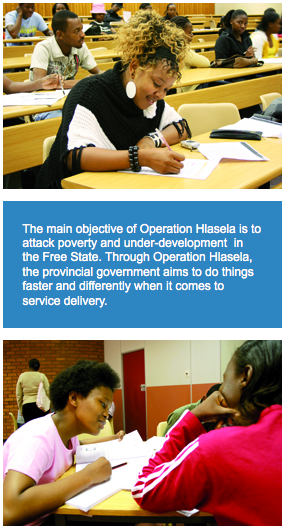 The Free State provincial administration has taken a bold step towards investing in the future. The provincial government made available R128 million for Free State students studying any of the scarce skill professions at higher education institutions throughout the country. It will fund tuition fees, accommodation and stationery needs for students who meet the necessary requirements.
The Free State provincial administration has taken a bold step towards investing in the future. The provincial government made available R128 million for Free State students studying any of the scarce skill professions at higher education institutions throughout the country. It will fund tuition fees, accommodation and stationery needs for students who meet the necessary requirements.
The skills acquired by bursary holders will go a long way to support the province’s service delivery plan called Operation Hlasela (meaning to attack in isiZulu).
Scarce skills
Scarce skills include information communication and technology, medicine, veterinary sciences, civil engineering, electrical engineering, agricultural sciences, chartered accounting and environmental sciences.
During 2010, more than 2 670 students were awarded bursaries to study in these fields. Premier Magashule said these students would, on completion of their studies, help to solve the critical shortage of skilled workers in various provincial departments and municipalities in the province. This in turn, will help to improve service delivery, particularly to rural municipalities where there is a serious shortage of engineers.
Bursary holders are expected to work hard in their studies, complete their courses within the required time and return to work in the province.
Performance
Bursary holders are expected to work hard in their studies, complete their courses within the required time and return to work in the province.
On completion of their studies, bursary holders will have to work in the Free State for the same number of years they were funded during their time of studying.
Students’ performance will be monitored by the Office of the Premier, as well as by members of the Provincial Executive Committee in the Free State.
They will visit the bursary holders at the institutions where they are studying to check their progress. During these visits, bursary holders will meet the Premier to discuss any problems they have and to update him on progress made with their studies.
More funds had been made available for the Bursary Scheme this year with the hope of increasing the number of holders to more than 3 000.
The Bursary Scheme is presently administered by the Free State Basic Education Department. A spokesperson for the department said they hoped that those students who did not get bursaries from the scheme would make use of other existing government schemes such as the National Student Financial Aid Scheme (NSFAS).
NSFAS bursaries for FET college students
Earlier this year, President Jacob Zuma and the Minister of Higher Education and Training, Dr Blade Nzimande, announced that final-year students who received loans from NSFAS would have those loans changed into bursaries if they completed their studies within the required time.
In addition to this, students who enrol at Further Education and Training Colleges will for the first time also get loans from NSFAS. Until last year it had only given financial assistance to students at academic u0niversities and universities of technology.
For more information about the Free State Bursary Scheme, contact the Free State Department of Basic Education: 051 447 2764.
For more information about NSFAS, call 021 763 3232; Email: info@nsfas.org.za
Keeping home-grown talent in the province
Keeping home-grown talent in the province sadmin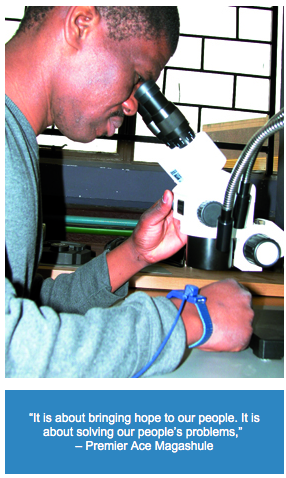 Premier Magashule put Operation Hlasela in place to speed up service delivery in the province. This will be achieved by removing blockages that prevented provincial departments and municipalities from meeting the basic service delivery needs of communities in the province, he said.
Premier Magashule put Operation Hlasela in place to speed up service delivery in the province. This will be achieved by removing blockages that prevented provincial departments and municipalities from meeting the basic service delivery needs of communities in the province, he said.
Working together
Through Operation Hlasela, the Provincial Government has partnered with municipalities across the province, as well as with the private sector to plan and carry out government projects and programmes.
Magashule added that the service delivery plan was modelled along the National Government’s slogan of: “Working together we can do more.”
Skilled graduates
By providing bursaries to needy students, the Free State Provincial Government will ensure that its home-grown talent stays in the province. This is because skilled graduates will be employed by provincial departments and municipalities in service-related positions.
He said this meant that different provincial departments and municipalities would not have to rely on hiring people from areas outside the Free State who may decide to go back to their areas. This would put service delivery at risk with many posts left vacant.
Valuable work experience for unemployed tourism graduates
Valuable work experience for unemployed tourism graduates sadminUbuntu Institute Fellowship Programme
A growing number of young people in South Africa have completed their studies, but can't find jobs. In partnership with government, a Johannesburg-based non-governmental organisation, is addressing this challenge by providing once-in-a-lifetime opportunities for a number of young tourism graduates to gain valuable work experience.
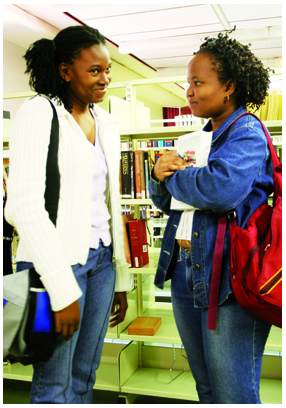 For the second year running, the Department of Tourism and a Johannesburg social enterprise non-governmental organisation are providing internships and working experience to young unemployed tourism graduates. These young graduates do their internships in large hotel groups overseas.
For the second year running, the Department of Tourism and a Johannesburg social enterprise non-governmental organisation are providing internships and working experience to young unemployed tourism graduates. These young graduates do their internships in large hotel groups overseas.
Called the Ubuntu Institute Fellowship Programme, this successful public-private partnership has given the young interns the opportunity to gain work experience in different cultures, while earning competitive salaries.
Kick-start
This has enabled some of them to come home and kickstart their careers. Students can either start their own business when they return to South Africa or receive job placement with the help of the Department of Tourism.
The Ubuntu Exchange Programme has seen the Johannesburg-based NGO partnering with The Ritz-Carlton Hotel Group (USA), Whistler Blackcomb Group (Canada), South Africa's national Department of Tourism, Services Seta and the Passenger Rail Agency of South Africa (PRASA).
This exchange programme saw more than 252 graduates in the hospitality sector being sent to North America and Canada on a one-year internship aimed at developing skills in the hospitality sector.
Ubuntu Institute
The group of South African youngsters left in October and December last year to start their internships at the four- and five-star hotels.
International
Ubuntu founder and Chief Executive Officer, Prince Cedza Dlamini said that all the placed interns are paid the equivalent of what locals are paid.
In November 2009, 112 young South Africans worked in the USA and Canada. One of the interns is Ditetso Anikinako, who worked at the Ritz Carlton in Florida.
"I had an opportunity to learn about taking care of people at an international level. My experience helped me to love people," said Anikinako of her one-year experience. Gugu Cele is another intern who participated in the 2009 programme. She said the internship had given her invaluable exposure to international standards of customer service excellence.
Service excellence
Cele said she hoped to use the skills she gained in the USA back home in South Africa to support government's vision of service excellence in the hospitality sector and making South Africa a world-class tourism destination.
The Ubuntu Institute hopes to increase the number of interns from 250 to 1 000 in future.
Ubuntu Institute: 011 566 6815
E-mail: info@ubuntuinstitute.com or the Department of Tourism on 012 310 3911
The State of the Nation Address
The State of the Nation Address Estelle GreeffSpecial edition feature - Government's Programme of Action
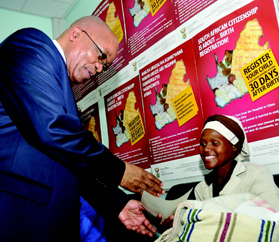 On 10 February 2011, President Jacob Zuma made his annual State of the Nation Address (SoNA). The SoNA is an important occasion when the President addresses the nation and outlines government’s Programme of Action, or its plans and priorities for the year.
On 10 February 2011, President Jacob Zuma made his annual State of the Nation Address (SoNA). The SoNA is an important occasion when the President addresses the nation and outlines government’s Programme of Action, or its plans and priorities for the year.
All of government’s plans are aligned to five priorities, namely:
- education
- health
- rural development and land reform
- creating decent work
- fighting crime.
“We have declared 2011 the year of job creation through meaningful economic transformation and economic growth.” – President Jacob Zuma, State of the Nation Address, 10 February 2011
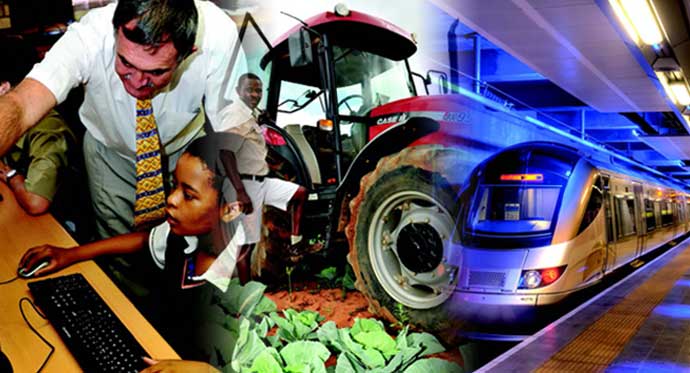
The State of the Nation Address
The State of the Nation Address sadminSpecial edition feature - Government's Programme of Action
On 10 February 2011, President Jacob Zuma made his annual State of the Nation Address (SoNA). The SoNA is an important occasion when the President addresses the nation and outlines government’s Programme of Action, or its plans and priorities for the year.
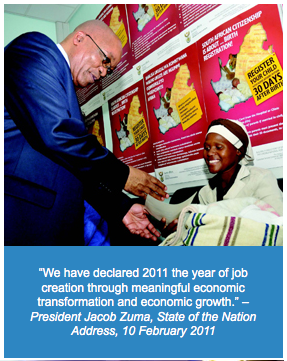 All of government’s plans are aligned to five priorities, namely:
All of government’s plans are aligned to five priorities, namely:
- education
- health
- rural development and land reform
- creating decent work
- fighting crime.
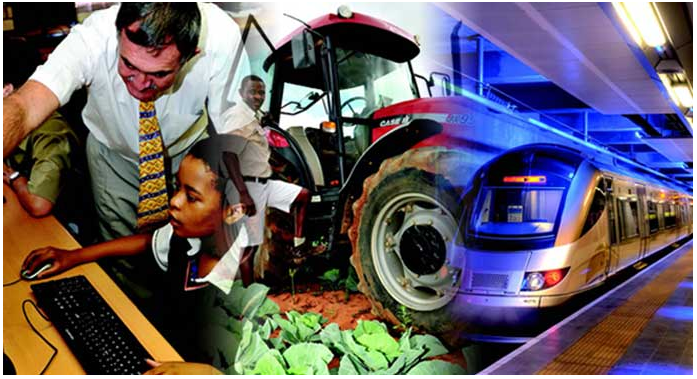
What government will be doing in 2011
What government will be doing in 2011 Estelle GreeffSpecial edition feature: Government's Programme of Action
Create jobs and grow the economy
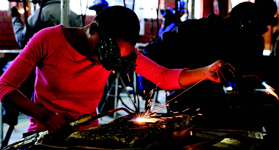 Government has declared 2011 a year of job creation. Every government department must ensure that its programmes support the creation of decent jobs.
Government has declared 2011 a year of job creation. Every government department must ensure that its programmes support the creation of decent jobs.
Government will also:
- Put into action the New Growth Path (NGP) that will guide its work to achieve job creation. The NGP aims to identify areas where employment creation is possible in the economy.
- Align the programmes of state-owned enterprises and development finance institutions.
- Establish a jobs fund of R9 billion over the next three years to finance new job-creation initiatives.
- Allocate R10 billion through the Industrial Development Corporation (IDC) for investment opportunities that can increase job creation over the next five years.
- Create 4,5 million job opportunities through the Expanded Public Works Programme.
- Enhance youth development. The National Youth Development Agency is in discussion with state organs and the private sector for youth development in public-sector programmes.
- Target the mining sector for growth through the creation of the African Exploration, Mining and Finance Corporation.
Did you know?
Government is rolling out the S'hamba Sonke ("walking together") Programme, a new and innovative nationwide drive to focus on the maintenance of our roads.
Some R6,4 billion is allocated for the programme in 2011/12; R7,5 billion in 2012/13; and R8,2 billion for 2013/14, amounting to a total of R22,3 billion. At least 70 000 jobs will be created in 2011 through this initiative. It will involve a national programme to fix the potholes on many of the country's roads.
Help small businesses to grow
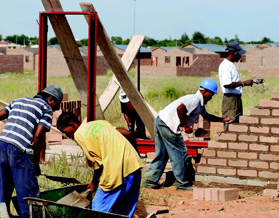 To help small businesses, government is considering merging the three agencies Khula, the South African Micro-Finance Apex Fund and the IDC’s small business funding into a single unit to cut administrative costs and offer more help to this sector.
To help small businesses, government is considering merging the three agencies Khula, the South African Micro-Finance Apex Fund and the IDC’s small business funding into a single unit to cut administrative costs and offer more help to this sector.- The campaign to ensure that government pays small, medium and micro-enterprises for services within 30 days, is going well. Last year, the Department of Trade and Industry’s payment hotline received over 20 000 calls and ensured that R210 million worth of payments were made.
- Government will continue to look at ways to make it easier to register small businesses.
Did you know?
Starting in June 2011, the Gautrain will move at least 40 000 people hourly on the commuter line between Johannesburg and Tshwane – stress-free and in less than 40 minutes!
Invest in infrastructure
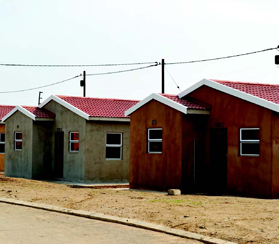 President Zuma announced that plans are in place to finalise and adopt the beneficiation strategy.
President Zuma announced that plans are in place to finalise and adopt the beneficiation strategy.- Eskom is investing more than R75 billion, mainly on the new stations Medupi, Kusile and Ingula, to ensure the security of electricity supply for the country.
- There are 1,2 million households living in the country’s 2 700 informal settlements. By the year 2014, 400 000 of these households should have security of tenure and access to basic services.
Provide social protection and community development
- Government will spend R2,6 billion on water services this year, especially in Limpopo, KwaZulu-Natal and the Eastern Cape where there are still high numbers of people without safe drinking water.
- Water reservoirs, windmills and irrigation schemes will be rehabilitated. Crops, livestock as well as grazing will be protected with the installation of fences. These projects will enhance food security and create work opportunities for many, especially women in rural areas.
- The Child-Support Grant will be phased in to cover children who qualify, up to the age of 18 years.
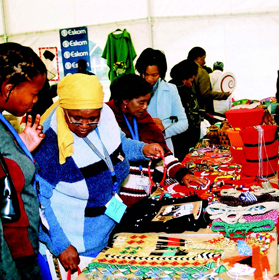 Did you know?
Did you know?
There are seven different types of social grants. Contact the South African Social Security Agency on 0860 10 11 or visit www.sassa.gov.za for more information on whether you qualify for a social grant and how you can apply for one.
Strengthen governance
-
Government has introduced a turnaround strategy for local government that focuses on, among other things, the strengthening of basic administrative systems, financial management and customer care.
-
The Special Investigating Unit will investigate alleged maladministration or corruption in various government departments.
Provide a better education
 Government is committed to improving the quality of learning and teaching.
Government is committed to improving the quality of learning and teaching.
- For basic education, government will emphasise the Triple T: Teachers, Textbooks and Time. This is to encourage teachers to be in class on time teaching for seven hours, and for government to ensure that every child has a textbook on time.
- Government will track performance through the independently moderated annual national assessments in all public primary schools for learners in grades one to six and a sample of learners in Grade 9. This year, more than 19 000 schools participated.
- Government will continue investing in teacher training, especially in Mathematics and Science.
- Government will empower principals to manage their schools and they will be held accountable for maintaining a high standard of education in our schools. Government is considering introducing a performance management system for principals.
- In higher education, government will increase access for poor youth by, among other things, converting loans into bursaries for qualifying final-year students.
- Starting from the 2011 academic year, government will introduce free education for the poor at undergraduate level. Students in further education and training colleges who qualify for financial aid will not pay academic fees. This will assist in increasing access to the colleges for students from poor families as well as help the country to meet its needs for intermediate and technical skills.
Did you know?
Government is committed to assisting young people to access higher learning. The National Student Financial Aid Scheme (NSFAS) will be getting R150 million more and there is also R100 million allocated to Career Wise bursaries.
Information on the NSFAS and Funza Lushaka Bursary Scheme can be obtained from the call centre on 0800 872 222 and the following websites: www.careerhelp.org.za, www.funzalushaka.doe.gov.za and www.nsfas.co.za.
Boost healthcare
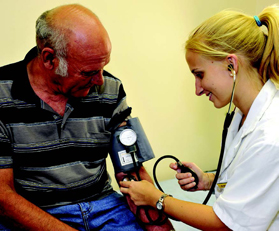 Government will improve healthcare by:
Government will improve healthcare by:
- appointing appropriate and qualified heads of department, chief financial officers, hospital chief executive officers, district health officers and clinic managers
- reviving 105 nursing colleges countrywide, to train more nurses
- opening a medical faculty at the Limpopo Academic Hospital to train more doctors
- renovating and upgrading hospitals and clinics
- providing reproductive health rights and services that include contraception, sexually transmitted infections, teenage pregnancies and sanitary towels for the poor
- continuing to implement programmes that promote various prevention measures, including medical male circumcision, prevention of mother-to-child transmission and the promotion of HIV testing.
Did you know?
Over five million HIV tests have been done since the launch of the testing campaign in April last year.
Build safer communities
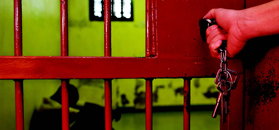 Fighting crime remains one of government’s key priorities. This year, government has committed to:
Fighting crime remains one of government’s key priorities. This year, government has committed to:
- improving the capacity and effectiveness of the police – in particular the detective services, forensic analysts and crime intelligence
- increased visible policing and patrols in identified hotspots
- reducing the proliferation of illegal and legal firearms
- working with communities and other key stakeholders to deal with drug peddling and abuse
- continuing to prioritise crime against women and children, and provide support through Thuthuzela care centres.
Did you know?
Crime statistics show that there has been a decrease in crime. Murder dropped by 8,6% last year. Government needs your help to stop criminals. Report criminal activity by calling 08600 10111.
Contribute to a better Africa and a better world
- South Africa is now part of the Brazil-Russia-India-China-South Africa forum which is important for developing economies.
- From August 2011, South Africa will chair the Southern African Development Community’s Organ on Politics, Defence and Security.
- South African will host the fifth India-Brazil-South Africa Summit this year.
"We want to have a country where millions more South Africans have decent employment opportunities, which has a modern infrastructure and a vibrant economy and where the quality of life is high." – President Jacob Zuma, State of the Nation Address, 10 February 2011
Budget highlights 2011
Budget highlights 2011 Estelle GreeffSpecial edition feature: Government's Programme of Action
In February each year, the Minister of Finance announces governemnt's spending, tax and borrowing plans for the year ahead. This is called the national budget speech. In the speech, the Minister provides information on how government will raise money and how it will be spent. The national budget divides money between national departments, provinces and municipalities.
Spending plans over the next three years
- R10 billion for job creation , small enterprise development and youth employment.
- R9,5 billion to increase enrolment at Further Education and Training colleges and skills development.
- R8,2 billion to improve school facilities
- R7,9 billion to improve primary healthcare, revitalise hospitals and combat HIV and AIDS.
- R10,4 billion for public transport, roads and rail infrastructure.
- R7,2 billion to upgrade human settlements, municipal services and water infrastructure.
- R2,8 billion for rural development and emerging farmer support.
- R8,9 billion for social security benefits and social grants.
- Old age and disability grant increase by R60 to R1 140 a month and the Child-Support Grant will increase to R260 in April and R270 in October.
- R1,8 billion for municipalities and provinces to deal with immediate disaster needs.
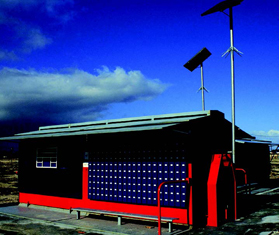
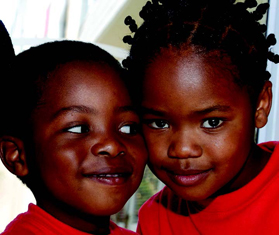
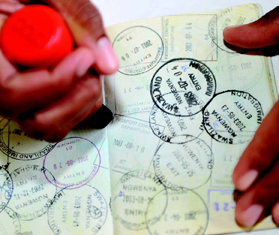
Reaching out to relieve flood damage
Reaching out to relieve flood damage sadminDisaster management
Recent floods in many parts of the country, have left thousands of people homeless, several homes, bridges and roads were damaged and more than 50 people have died. Government set aside R800 million to assist people affected by the floods. Non-governmental organisations and the private sector have also reached out to help.
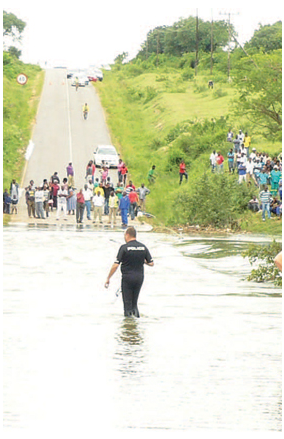 Flood damage has seen 33 district municipalities in eight provinces declared as disaster areas. The money put aside by government will be used to provide immediate relief of communities that were affected by the floods.
Flood damage has seen 33 district municipalities in eight provinces declared as disaster areas. The money put aside by government will be used to provide immediate relief of communities that were affected by the floods.
Municipalities and disaster management services around the country are continuing to assess the damage to infrastructure, homes and farming land. In the meantime, government has provided shelter, food parcels and counselling to stranded families. Immediate flood relief goods include bags of maize meal, as well as rice, beans, sugar, tea and cooking oil. The hygiene pack included toothpaste, dish washing liquid, washing powder and petroleum jelly, among other items.
Water infrastructure
The Department of Water and Environmental Affairs has conducted a
national assessment on the state of water infrastructure. This includes water treatment works that have been flooded, which can be a threat to the water quality.
The department also assigned teams to assess and cost the damage to its own infrastructure, mainly water and dam monitoring equipment that could be damaged or even uprooted.
A helping hand
The National Lottery has contributed R50 million and the Department of Public Works has announced that R150 million will be used to fix potholes and R30 million to build bridges. Banking giant Absa has also responded to the call for help by donating R1 million for disaster relief.
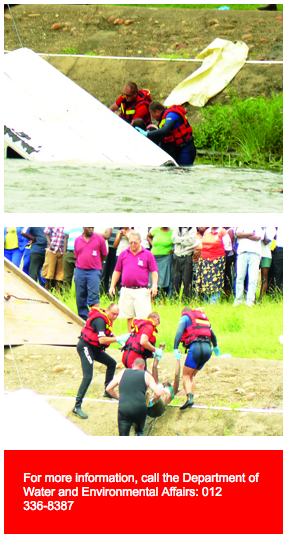 Non-governmental organisations, the private sector, religious organisations and communities are also lending a helping hand to flood victims.
Non-governmental organisations, the private sector, religious organisations and communities are also lending a helping hand to flood victims.
The Gift of the Givers, a non-governmental organisation, well-known for providing humanitarian assistance in disaster stricken areas, sent food and hygiene parcels to the victims of flash floods at Themba Khoza informal settlement, near Ivory Park outside Tembisa.
Clean water
After the floods, many informal areas had no electricity. Sewage was running down the streets and there were only a few water taps for thousands of residents. This has led to victims in many affected areas using polluted water from the rivers, which is dangerous as it could lead to water-borne diseases.
A pressing need arose for clean water, food and shelter, as well as control and treatment of possible water-borne diseases such as cholera and diarrhoea.
Anti-cholera campaigns were started in the affected areas to educate communities on water safety and ways of treating polluted water.
The Department of Water and Environmental Affairs has provided clean water through tankers and the installation of rainwater tanks.
Precautions
The public is encouraged to take normal precautions when using water from rivers and streams in affected areas. The vaccination of livestock is also very important. More awareness campaigns can be expected to alert the nation to the dangers that come with flooding and the after effects of floods.
Government has further intensified its flood relief efforts by putting aside R20 million to rebuild the country’s infrastructure and offer assistance to households ravaged by the flash floods. It has also earmarked funding to deal with post-disaster recovery and reconstruction in the years ahead.
Disaster areas
After the floods, eight of South Africa’s provinces were declared as disaster areas in terms of the Disaster Management Act. This means they are priority areas for receiving help. The only province not declared a disaster area is the Western Cape. Cost of damage in the provinces worst affected by the floods:
-- KwaZulu-Natal: about R300 million
-- Eastern Cape: R150 million
-- North West Province: about R80 million
-- Northern Cape: R50 million
More jobs, better living conditions
More jobs, better living conditions sadminThe budget
Government continues to make good progress to create more jobs and improve the basic living conditions of South Africans. This was demonstrated when Finance Minister Pravin Gordhan announced details of the Budget for the financial year starting in April 2011 and ending in March 2012.
Social protection
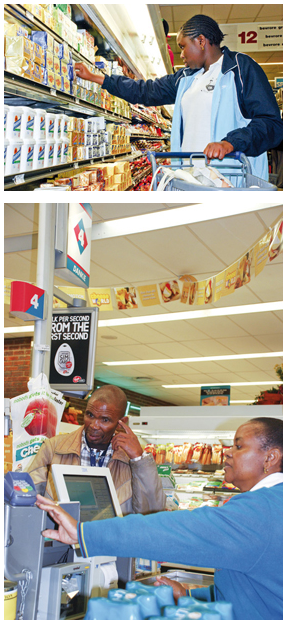 The largest part of the Budget allocation (R577, 3 billion) goes to social services. These include education, which gets R189 billion, followed by R147 billion for social protection.
The largest part of the Budget allocation (R577, 3 billion) goes to social services. These include education, which gets R189 billion, followed by R147 billion for social protection.
Social protection includes grants for elderly people, disability grants, foster care grants, war veterans' grants and child support grants.
In addition to these grants, social protection also includes the Unemployment Insurance Fund (UIF), occupational injury or workmen's compensation and the Road Accident Fund (RAF) for victims of road accidents.
Grants
Almost 15 million people in South Africa currently receive social grants. This number is set to increase as the child support grant has now been extended to children up to 18 years old.
Starting in April this year, the State's old age and disability grants will rise by between R20 and R60 to R1 160 a month, while the child support grant will increase from R250 to R260.
Human settlements
Government has allocated R122 billion to human settlements and R112 billion to health.
An amount of R73 billion has been allocated to the Expanded Public Works Programme (EPWP) over a period of three years to create more jobs.
Employment opportunities will include community-based projects, environmental and social programmes and maintenance of roads and infrastructure.
Land reform and agricultural development
An additional R2,2 billion has been allocated to land reform and agricultural development programmes.
These will focus on rural job creation and fighting poverty, as well as expanding agricultural production and improving food security.
Minister Gordhan said this would include a further R400 million for the Comprehensive Agricultural Support Programme and the Land Care Programme grant.
This funding will enable an additional 5 000 recruits to join the National Rural Youth Services corps.
Crime
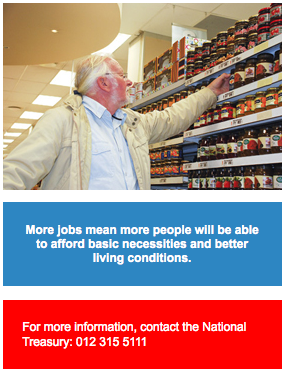 In the fight against crime, government will start putting a process in place which will see an increase in police personnel from the present 190 000 to about 202 000 police officers by 2014. In addition, 103 new police stations will be built in rural areas throughout the country.
In the fight against crime, government will start putting a process in place which will see an increase in police personnel from the present 190 000 to about 202 000 police officers by 2014. In addition, 103 new police stations will be built in rural areas throughout the country.
Further education and training
To improve education and skills development, government will spend an additional R1,4 billion on Further Education and Training (FET) over the next three years.
A total of almost R10 billion has been allocated to this sector for the new financial year. This additional allocation is expected to increase enrolment at FET colleges from about 198 000 recorded in 2010 to 315 000 in 2011.
Government, for the first time will also provide bursaries to FET students through the State Bursary Scheme. An amount of R5 billion has been set aside to enable an additional 120 600 needy learners to access tertiary education opportunities.
Nursing as a first career of choice
Nursing as a first career of choice sadminYour health
What do nurses do?
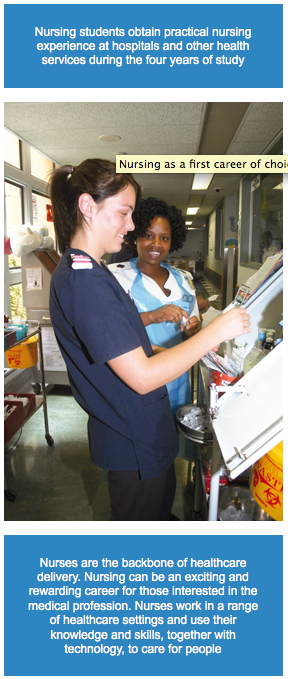 A nurse can work in various hospitals and clinics in the community, or specialise in general medical and surgical nursing science, trauma nursing, theatre nursing, community nursing, psychiatric nursing, midwifery nursing, paediatric nursing, neonatal nursing, nursing management and nursing education.
A nurse can work in various hospitals and clinics in the community, or specialise in general medical and surgical nursing science, trauma nursing, theatre nursing, community nursing, psychiatric nursing, midwifery nursing, paediatric nursing, neonatal nursing, nursing management and nursing education.
How do I become a nurse?
Training is offered at nursing education institutions. These institutions can be a nursing science department, a school of nursing in a university, or colleges of nursing and nursing schools. In South Africa there are at present three categories of nurses: registered nurse, enrolled nurse and enrolled nursing auxiliary.
What training does a university offer?
Universities offer a basic four-year, full-time undergraduate degree (BCur) that prepares students in four career fields, namely: general nursing (caring for people in hospitals, clinics and private practices); community nursing (primary healthcare and the prevention of disease in the com-munity); psychiatric nursing (treating the mental health of individuals); midwifery nursing (caring for mothers and babies).
Clinical (practical) nursing ex-perience is obtained at hospitals and other health services during the four years of study. Universities also offer post basic qualifications at diploma, degree, masters and doctorate levels.
What training does a college of nursing offer?
There are public and private nursing colleges and the most common courses they offer are: a four-year diploma leading to registration as a nurse (general, psychiatry, community or midwifery); a two-year bridging course; one-year courses; post basic diplomas.
What courses will I study?
A student can expect to study fundamental subjects such as anatomy and physiology, behavioural sciences, nursing, midwifery, community and psychiatric nursing.
What are the academic requirements for college study?
A matriculation certificate is the minimum admission requirement for college study.
What are the academic requirements for university study?
The admission requirements for university are a matriculation exemption (some universities require certain subjects like Biology, Physical Science or Mathematics). As there are different academic requirements, it would be best to contact the training institutions for their specific requirements.
How can I recognise a fly-by-night training institution?
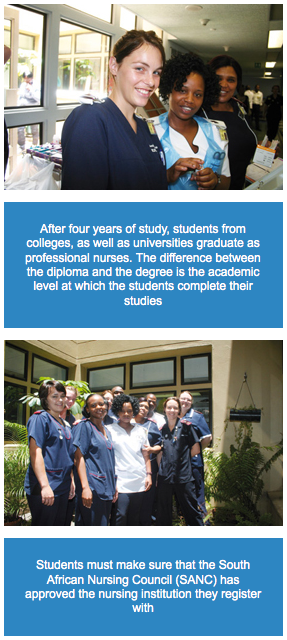 Students must be very careful and make sure that the South African Nursing Council (SANC) has approved the nursing institution they register with. If the institution and/ or courses are not approved, SANC will not recognise the training and the student will not be allowed to practise. A list of the SANC approved nursing education institutions is available on their website www.sanc.co.za.
Students must be very careful and make sure that the South African Nursing Council (SANC) has approved the nursing institution they register with. If the institution and/ or courses are not approved, SANC will not recognise the training and the student will not be allowed to practise. A list of the SANC approved nursing education institutions is available on their website www.sanc.co.za.
What is the difference between a nursing degree and a diploma?
After four years of study, students from colleges and universities graduate as pro-fessional nurses. The difference between the diploma and the degree is the academic level at which students complete their studies. A BCur graduate will have an advantage when it comes to specialising in a certain field of nursing. Bridging courses are available for college graduates to 'top-up' their qualifications to a degree level to assist future career development.
A nursing college is the answer for the student who cannot afford university fees. An advantage is that students receive payment for their practical (clinical) work while they are studying. A university student is required to study as a full-time student.
Nursing categories
The SANC is currently reviewing all the nursing training programmes to align new nursing qualifications with the National Qualifications Framework and related legislations.
The new Nursing Act, 2005 identifies four nursing categories: professional nurse; midwife; staff nurse; nursing auxiliary or auxiliary midwife.
For more information, contact the Department of Health: www.doh.gov.za or the South African Nursing Council: www.sanc.co.za
Early warning system for floods
Early warning system for floods sadminDisaster management
The number of weather-related natural disasters has increased during the past few years throughout the world. This has resulted in the loss of lives and damage to property.
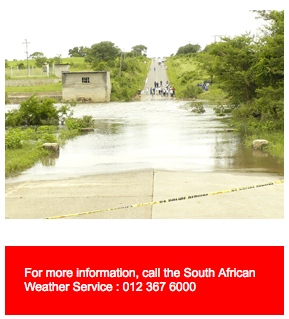 Several parts of South Africa experienced severe weather conditions recently which saw most of the country's provinces including Gauteng, KwaZulu- Natal, Limpopo, Northern Cape, North West and the Free State hit by floods.
Several parts of South Africa experienced severe weather conditions recently which saw most of the country's provinces including Gauteng, KwaZulu- Natal, Limpopo, Northern Cape, North West and the Free State hit by floods.
Bridges have been washed away cutting off communities, some people lost their homes and many farmers suffered crop losses.
Accurate forecasts
It is against this background that the South African Weather Service has developed a flood early warning system.
The Flash Flood Guidance System started operating in July last year. It is used by the South African Weather Service to warn people of possible flooding.
The system provides weather warnings in userfriendly language that can be understood by everyone. The system works by collecting information from automatic weather and rain systems, satellites and radars. This information helps weather forecasters to make accurate forecasts.
Prepare in advance
It is thanks to this system that the National Disaster Management Centre of the Department of Cooperative Governance was able to give an early warning to municipalities that were to be affected by floods. This helped them to prepare in advance.
Revitalising special police units
Revitalising special police units sadminSafety and security
We are continuing to improve the capacity and effectiveness of the police, said President Jacob Zuma in his State of the Nation Address earlier this year. Part of strengthening the police involve the revitalisation of special police units to protect our women and children.
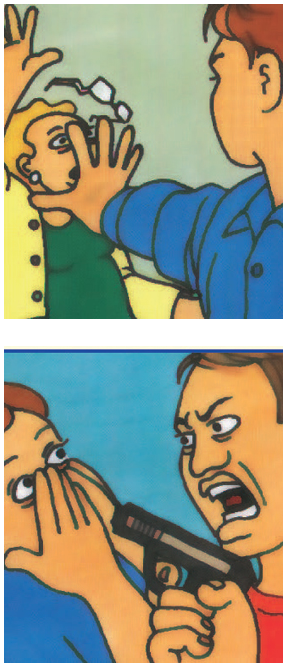 Government is serious about fighting the continuing incidents of crime against women and children. As an important step in ongoing efforts to address this issue, government through the Police Department, decided to revitalise police units dedicated to investigating incidents of abuse and violence against women and children.
Government is serious about fighting the continuing incidents of crime against women and children. As an important step in ongoing efforts to address this issue, government through the Police Department, decided to revitalise police units dedicated to investigating incidents of abuse and violence against women and children.
Formerly known as Child Protection Units (CPU), these units have been renamed to include sexual crimes. They are now called the Family Violence, Child Protection and Sexual Offences (FCS) units.
Working together
Government’s approach to fighting crime against women and children is multi-departmental. This means that in addition to the Police Department, three other government departments will work together to help women and children who are victims of crime.
These are the Department of Social Development, the Department of Women, Children and People with Disabilities and the Department of Justice and Constitutional Development.
Already, more than 175 specialised FCS units have been set up throughout the country.
"We will continue to prioritise crimes against women and children…"– President Jacob Zuma, State of the Nation Address, February2011
Ongoing support
Women and children who are victims of crime will also get ongoing support from the moment they report the crime, throughout the investigation and up to the time of the hearing of the trial.
This will continue even after the trial so that victims do not feel isolated or abandoned.
Government has therefore prioritised and strengthened its efforts in protecting women and children against vicious acts of rape and abuse.
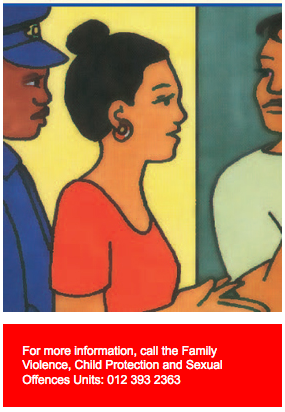 Police Minister Nathi Mthethwa said that the FCS units would also work together with non-governmental organisations.
Police Minister Nathi Mthethwa said that the FCS units would also work together with non-governmental organisations.
Mthethwa said that instructions to police stations clearly state that "Women and children, who come to the station reporting such crimes, must not be treated as criminals."
He said this would prevent what has been happening in the past. "There are instances where such victims are humiliated, harassed and inhumanely interrogated."
This treatment has resulted in many victims choosing not to report such crimes as they felt victimised for the second time. "This will be a thing of the past because we will have specially-trained personnel who understand the trauma," said Mthethwa.
Turning the tide against crime
Turning the tide against crime sadminPolice recruitment policy
As the first line of defence in government's fight against crime, the Police Department has put in place a new recruitment policy to ensure that new recruits will be able to handle the important task of turning the tide against crime.
 The new recruitment process will be more open and thorough, said Police Commissioner General Bheki Cele. He welcomed more than 1 800 new police recruits during a recent ceremony at the Pretoria West police training college. The new recruits are among 5 000 who started their basic training across nine training institutions in the country in January.
The new recruitment process will be more open and thorough, said Police Commissioner General Bheki Cele. He welcomed more than 1 800 new police recruits during a recent ceremony at the Pretoria West police training college. The new recruits are among 5 000 who started their basic training across nine training institutions in the country in January.
Good examples
Cele said the Police Department is now looking for people who will serve as good examples to our society. In the past, the police service had become a dumping ground for those who had failed to get placement in other areas.
The new approach to recruitment will not only ensure that recruitment is fair and open to all, but will also help to avoid attracting people to the police who may not be suitable for the job.
Community approval
From now on would-be recruits will have to be approved by the communities from where they come. This will also involve stakeholders representing communities, such as community policing forums.
In addition, recruitment is now being handled by provincial recruitment and selection committees instead of individual people. The provincial selection committees, in turn, work with a national recruitment and selection 31committee which oversees the work of the provincial committees.
Batho pele
Instead of the traditional 12-month training period, the training will now take two years. This will include theory, as well as practical training.
The new recruits will also be trained in certain aspects of the Constitution and batho pele principles.
The previous requirement that potential recruits should have a driver's licence had proven to be a problem as it had excluded many good candidates. The new recruitment policy therefore do not require new recruits to have a driver's licence since driving lessons will now form part of the training.
Discipline and principles
Speaking at the same welcoming ceremony, Police Minister Nathi Mthethwa said it was expected of the new police recruits to uphold discipline and the principles of the Constitution.
He said the Police were in search of a new kind of policeman or woman. New recruits should remain morally upright, serve with excellence and enforce the law at all times, without fear or favour.
Shield of the nation
"You heeded the call and the entire nation will be looking upon you for their safety. The expectations will be no less. Without doubt the challenges will be massive. Now more than before, the nation will in the coming years rely on you to fight crime. You will be the shields of the nation," said Minister Mthethwa.
Communities speak up on crime
Communities speak up on crime sadminPolice Crime Imbizo
The Police Crime Imbizo forms part of an ongoing campaign by police to visit communities where there are high crime levels, including the use of deadly drugs. This gives people the opportunity to speak their minds on crime and to find ways to cooperate with the police.
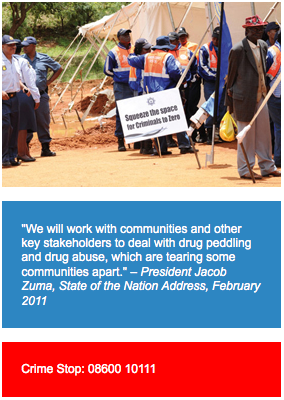 Community members could not believe their ears when National Police Commissioner General Bheki Cele ordered the Gauteng police management to give their police issue cellphone numbers to a packed marquee in Soshanguve near Pretoria recently.
Community members could not believe their ears when National Police Commissioner General Bheki Cele ordered the Gauteng police management to give their police issue cellphone numbers to a packed marquee in Soshanguve near Pretoria recently.
The occasion was the Police Crime Imbizo held at Rietgat Grounds in Soshanguve outside Pretoria.
Complaints
During the emotionally charged Imbizo, community members could not hide their frustration about the high levels of crime.
Complaints raised by community members included the police's reluctance to deal with drug dealers, poor response time by police and the lack of resources such as police cars.
In addition, community members also complained about the slow response time of police during incidents of crime and the failure by police at station level to answer calls from the public.
Applause
This prompted Minister Mthethwa to recommend that it was high time that contact numbers of senior police management be given to community members so that they could call them if they did not get help at station level.
Leading by example, General Cele took to the podium and gave out his cellphone number. He repeated it twice to the drowning applause of the approving community members.
Deadly drugs
Areas that police have visited include Itshelimnyama Reserve in Marianhill outside Pinetown in KwaZulu- Natal.
In both Itshelimnyama and Soshanguve many people have started to use a deadly cocktail of recreational drugs called "Whoonga" and "Nyaupe" respectively. These drugs are said to include a combination of heroine or mandrax mixed with antiretroviral drugs, as well as deadly pellets used to kill rats and mice.
Stop idolising criminals
During the Police Crime Imbizo, Minister Mthethwa urged community members to stop idolising criminals. He said they should be reported to the police so that they could be arrested. The police must profile the drug lords so that they can be charged as they are the ones who are killing the country's future by selling drugs to learners, the Minister said. Mthethwa said a plan must be found to get rid of drugs in the area and at school premises.
"The schools are our future and if they are targeted by drug peddlers, then that means our future is doomed," he said.
Do you qualify for a grant?
Do you qualify for a grant? sadminSocial security grants
For many South African families, social security grants have become their only source of income. These grants include old-age pension, disability, foster care, child-support, war veterans and social relief of distress. People who wish to receive or continue to receive grants, must make sure that they meet the specific requirements.
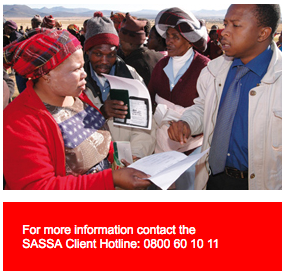 The South African Social Security Agency (SASSA), an agency of the Department of Social Development, is responsible for paying social security grants. To qualify for a grant, an application must be made at any of the SASSA offices throughout the country.
The South African Social Security Agency (SASSA), an agency of the Department of Social Development, is responsible for paying social security grants. To qualify for a grant, an application must be made at any of the SASSA offices throughout the country.
Remote areas
In addition to these offices, SASSA also has trucks that serve as mobile offices. The trucks go to remote areas to help people who don't have easy access to SASSA offices. These trucks usually travel to places where government's outreach programmes with communities are held, such as Public Participation Weeks formerly called Imbizo.
Requirements
People who wish to receive grants, have to meet certain requirements. For example, beneficiaries of old age pension grants should not be receiving any other source of income or other grants at the same time.
To receive a disability grant, you must be between the ages of 18 and 59 and must provide a medical or assessment report showing that you are disabled. The report should not be older than three months at the date of application.
Some disability grants are issued on a temporary basis and are reviewed after a certain period of time.
Foster care
The care dependency grant also requires applicants to provide a medical or assessment report. The medical or assessment report must show permanent or severe disability and the child must also not be permanently cared for in a State institution like an orphanage or a children's home.
This grant is paid to persons living with a child that is dependent on those persons for care. The child must be under the age of 18.
Assessment
SASSA advises people who receive foster care grants to notify their nearest SASSA office when the child on whose behalf the care grant is paid, is about to turn 18 years as the grant will be stopped automatically at the age of 18.
The foster care parent has to notify SASSA at least 90 days or three months before the child turns 18 so that an assessment can be made whether to continue to pay the grant if the child is still dependent on the foster parent's care.
Temporary grants
This also applies to people who receive temporary disability grants. They have to notify SASSA at least three months before the grant is due to be stopped. The grants are stopped when there has been a change in the circumstances of the recipient.
For example, if you receive a temporary disability grant, a change in your medical circumstances such as recovering from the temporary disability, will result in the grant being stopped.
Repairing flood damage benefits communities and helps create jobs
Repairing flood damage benefits communities and helps create jobs sadminExpanded Public Works Programme
Job creation is receiving a boost with government injecting an amount of R220 million into the Expanded Public Works Programme (EPWP). The aim is to create almost 16 000 job opportunities. Temporary jobs include repairing of flood damage to infrastructure.
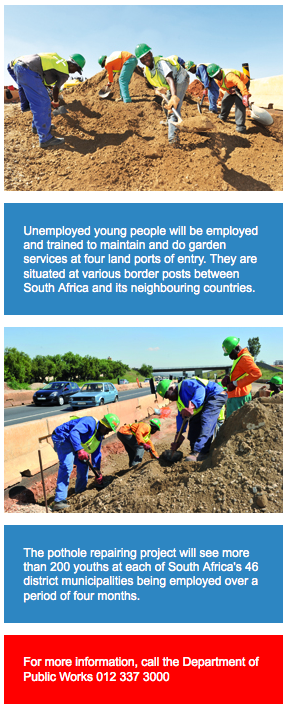 The job creation drive will not only benefit unemployed people, but will also help communities where the recent floods have caused damage to infrastructure like roads and bridges. It will see potholes being repaired and new low-water bridges being built to replace those that were washed away during the floods
The job creation drive will not only benefit unemployed people, but will also help communities where the recent floods have caused damage to infrastructure like roads and bridges. It will see potholes being repaired and new low-water bridges being built to replace those that were washed away during the floods
Youth
More than 14 000 people, mainly youths, will be employed over a period of four months to repair potholes in different parts of the country.
The projects, chosen in cooperation with the nine provincial public works departments, will be additional to the existing EPWP projects that are already being carried out by the Department of Public Works.
Building bridges
The recent floods have made some areas in the country inaccessible because of the bad state of the roads and the damage to many bridges. The damage to low-lying bridges has made it difficult for communities in some rural areas to go about their daily lives. This includes children having difficulty getting to school and people being unable to reach clinics and hospitals.
Government has promised to make sure that children are able to go to school. The Public Works Department has therefore decided to enter into a partnership with the South African National Defence Force's Engineering Section to build 40 bridges in the four provinces hardest hit by the floods. These are the Eastern Cape, Mpumalanga, North West and Limpopo.
The bridges will replace those that were washed away during the floods.
The bridge-building project is set to cost R30 million. This includes employing local people to assist during the construction of the bridges.
Garden maintenance
In addition, more than 2 000 youths will be employed and trained for a period of between 18 and 22 months to do garden and maintenance services at four land ports of entry. These ports include the Golela border post between South Africa and Swaziland and the Lebombo border post between South Africa and Mozambique.
The youths will be provided with appropriate clothing such as overalls and gumboots, as well as the necessary tools.
Own businesses
One of the aims of the project is that some of the youths who will complete training in garden maintenance and services will be able to start their own small gardening businesses in their own communities, said Mandla Mabuza, Deputy-Director General for Special Projects at
the Public Works Department.
"Starting their own businesses, could see them being hired to do garden services and maintenance at residential and commercial gardens thus helping them to put bread on the table for their families," Mabuza said.
Pothole repairs
R150 million will be used to repair potholes. Half of this amount will go towards paying the people who do the work, while the other half will be spent on equipment needed to carry out the task.
The pothole repairing project will see more than 200 youths at each of South Africa's 46 District Municipalities being employed over a period of four months. In repairing potholes, the Department of Public Works said it would ask the services of its agency Agre'ment to ensure that the potholes are permanently fixed.
Agre'ment works with the Council for Scientific and Industrial Research (CSIR) on developing products to repair potholes permanently.
New Growth Path
Money allocated towards the different projects could increase if the provinces are able to make a contribution.
Some provinces have undertaken to meet or match government's contribution rand for rand. This could see many more people being employed.
The 16 000 jobs would also go a long way towards meeting government's New Growth Path which has set a goal of creating more than 500 000 jobs per year.
Historic event clears the way for job creation
Historic event clears the way for job creation sadminFocus on the provinces: Northern Cape
Poor communities in some remote Northern Cape towns are excited at the prospect of being part of an historic event. This event is set to take place in the summer of 2012 in the Hakskeen Pan desert where the world's first 1 600km per hour land speed record attempt will take place.
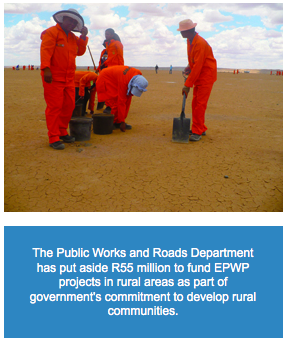 More than 300 residents from Loubos, Rietfontein, Klein Mier, Groot Mier and Philandersbron are helping to prepare the track for a land speed record attempt. Women, men, young and old are picking up stones, rocks and pebbles to turn the area into a race track as part of the Expanded Public Works Programme (EPWP) project for the Bloodhound Supersonic Car.
More than 300 residents from Loubos, Rietfontein, Klein Mier, Groot Mier and Philandersbron are helping to prepare the track for a land speed record attempt. Women, men, young and old are picking up stones, rocks and pebbles to turn the area into a race track as part of the Expanded Public Works Programme (EPWP) project for the Bloodhound Supersonic Car.
Creating jobs
The Public Works and Roads Department has put aside an amount of R55 million in 2011 to fund EPWP projects in rural areas as part of government's commitment to develop rural communities.
Northern Cape Public Works and Roads MEC, Mr Dawid Rooi, said his department had decided on the EPWP project to create jobs for the unemployed people of Loubos, Rietfontein and surrounding villages.
"A bulldozer would have done this job within a short period of time, but we deliberately chose to make it an EPWP project so that we could create job opportunities for the local communities," said Rooi.
Protective clothing
The track that is being cleared is 20 km long and at its widest is 1,5 km wide. Five communities surrounding the pan were consulted weeks before to identify needy communities so that they could be hired for six months.
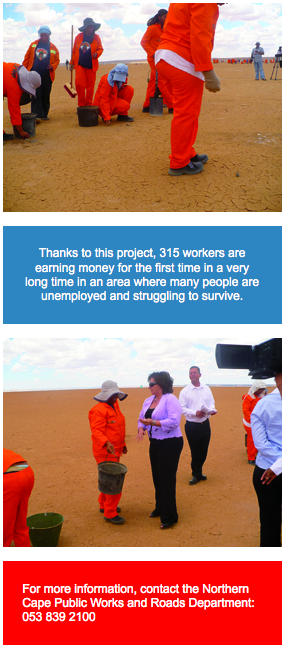 Armed with 150 buckets, 150 spades, 20 wheelbarrows, 50 brooms and 50 rakes, the workers divided themselves into groups working on specified sections of the desert. The workers, who are working in the searing heat of the Kalahari desert, have received protective gear including wide-rimmed hats, overalls, boots and gloves.
Armed with 150 buckets, 150 spades, 20 wheelbarrows, 50 brooms and 50 rakes, the workers divided themselves into groups working on specified sections of the desert. The workers, who are working in the searing heat of the Kalahari desert, have received protective gear including wide-rimmed hats, overalls, boots and gloves.
Monthly allowance
The workers are paid R700 every two weeks, which is a total monthly allowance of R1 400, to help turn the area into a race track for the Bloodhound Supersonic Car.
According to Track Boss, Rudi Riek, the Hakskeen Pan Bloodhound project is presently the largest upliftment programme in the Northern Cape. Riek said the 315 workers were earning money for the first time in a very long time in an area where many people are unemployed and struggling to survive.
Earn a living
In November last year, Northern Cape Premier, Hazel Jenkins, accompanied by other Members of the Executive Council officially launched this EPWP project. Premier Jenkins said the decision to use manual labour to prepare the race track had helped many families in the area to earn a living.
Great strides towards rural development
Great strides towards rural development sadminFocus on the provinces: Free State
Rural development is one of government's key priorities and some provincial governments are taking great strides in this field. The Free State Department of Agriculture and Rural Development started various schemes to help emerging farmers in the province. These include a Nguni cattle project, food security programmes and goat farming projects.
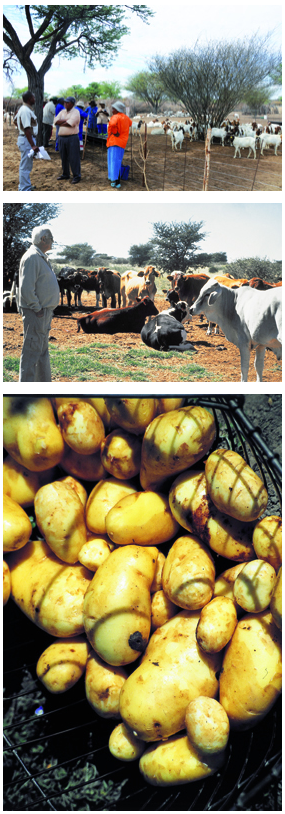 Different farming co-operatives in different districts of the Free State received 80 heifers and 16 Nguni bulls as part of the Nguni Cattle Scheme. The main objective of the scheme is to ensure that there is an ongoing programme of breeding for this kind of cattle. Nguni cattle are well-known for their resistance to harsh conditions such as drought.
Different farming co-operatives in different districts of the Free State received 80 heifers and 16 Nguni bulls as part of the Nguni Cattle Scheme. The main objective of the scheme is to ensure that there is an ongoing programme of breeding for this kind of cattle. Nguni cattle are well-known for their resistance to harsh conditions such as drought.
Among the areas that received heifers are the BVQ Farmland Trust, Buckland Family Trust, Moalosi Farm and the Ngxito Trust.
Goats
The Free State Department of Agriculture and Rural Development has also made available funding for women's co-operatives to start a goat-farming business. This will include agri-processing and value adding projects such as dairy operations using goat's milk to make cheese.
More than R2 million was also set aside to assist farmers in various other agricultural activities.
Vegetables
In the Xhariep (Gariep) district, the Department has funded farming projects at a cost of R7,6 million. These include vegetable production, poultry infrastructure, dairy production and food processing plants.
In addition, the Department has also made it possible for emerging farmers to partner with experienced commercial farmers and farmer organisations.
These organisations include the Oos Vrystaat Koöperasie, Grain South Africa based in Bothaville and the Vrystaat Koöperasie Beperk (VKB).
These programmes have benefited farmers in Shekeshe Soutpan Salt, Amona Enterprise and the Bethlehem Farmers Trust.
Women farmers
Known as the bread basket of South Africa, the Free State Agriculture Department is also encouraging young females to actively participate in animal production.
Using platforms like the Female Entrepreneur of the Year (formerly known as the Female Farmer of the Year), the department hopes to motivate a number of young women who want to make farming a career of choice.
Two young women from the eastern Free State have made a name for themselves with their successful farming enterprise called Mochochonono. The name, which refers to a bird that flies high, befits these two young women who are flying high on success.
Cousins Nthabiseng Mokoena (21) and Palesa Mokoena (19) from the Tsheseng Village in Qwaqwa, were the Free State winners in the Top Young Entrepreneur Category in the 2010 Female Entrepreneur of the Year.
Success story
The two cousins run their fresh produce Mochochonono farm from their village and they produce a variety of vegetables including garlic, pepper and cabbage.
They supply local supermarkets with fresh produce. Their success story is remarkable that neither of them has formal training in vegetable and crop production.
It is thanks to their grandparents who used to farm on the patch of family land that the seeds of interest in farming were planted in the minds of the granddaughters.
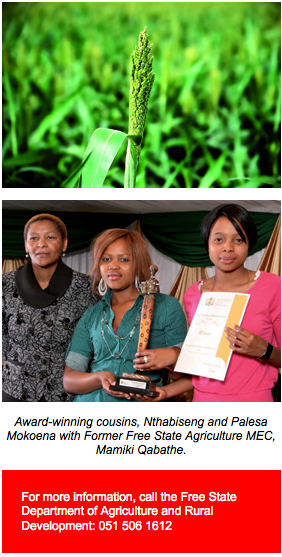 Livestock farming
Livestock farming
For Palesa and Nthabiseng, helping their grandparents in their small farming business became an afterschool chore.
After winning the 2010 Top Young Entrepreneur in the Female Entrepreneur of the Year Competition, the two cousins have now set their sight on livestock farming.
They agreed to use the R25 000 prize money to start their livestock farming business.
The cousins are very much aware that cattle farming or any kind of livestock farming needs double efforts and determination.
The know that livestock farming has its ups and downs and realise that there is always a risk of stock theft, outbreak of disease, and drought. So they must have the will to succeed.
Support
Drawing from their successful running of the Mochochonono Farm, the two cousins say nothing will stand in their way to become successful livestock farmers in the future.
"It is the same as the time when we started our vegetable farming business. Originally, it was just to help us have fresh produce for our own use as we believed we could save a lot of money by growing our own vegetables. But in no time, we started selling to local villagers and stalls, and as they say – the rest is history," said Nthabiseng.
She added that the support they got from their customers encouraged them to grow their farming business as more people and supermarkets relied on them for supplying fresh produce.
Cherry on top
"For us, winning in the Top Young Entrepreneur category in the Female Entrepreneur of The Year Competition was just like the cherry on top of the cake, as we felt it was the recognition and appreciation of our hard work."
The two cousins have approached the local municipality about obtaining vacant land which they can use to grow their business.
Loyalty and hard work is paying off
Loyalty and hard work is paying off sadminFocus on the provinces: KwaZulu-Natal
Loyalty, determination and hard work finally paid off for a group of KwaZulu-Natal farm workers when they bought a poultry farm from their employer with the help of government. The eggproducing farm continues to provide an income and job security from more than 15 people in Ngogo area outside Newcastle.
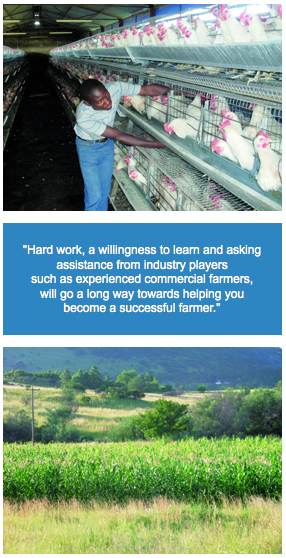 It all started in 1991 when a Western Cape policeman who had been posted to the area of Newcastle started a small poultry farming business in Ngogo. Seventeen years later in 2008, the policeman was approaching his retirement and he started to look for a buyer for his poultry farming business.
It all started in 1991 when a Western Cape policeman who had been posted to the area of Newcastle started a small poultry farming business in Ngogo. Seventeen years later in 2008, the policeman was approaching his retirement and he started to look for a buyer for his poultry farming business.
Locals
The retiring policeman's wish was to see his successful farm continue to provide employment for the locals who worked for him.
"He said because of the loyalty, dedication that we had shown during the 17 years we worked with him, he would prefer that he sell the farm to us," said Thuthukani Farming Close Corporation Chairman Mr Mthobisi Madi.
Business plan
Madi and the other farm workers, who are all young people, approached the KwaZulu-Natal development finance institution
Ithala Bank for financial assistance. They were advised that they should approach the then Land Affairs Department now called the Rural Development and Land Reform.
"After seeing our business plan and the income that the business was bringing in, the Department of Rural Development and Land Reform decided to buy the land and buildings of the 135-hectare poultry farm," said Madi.
He said the owner's asking price for the land, buildings and the implements had been R3,9 million. The Rural Development and Land Reform Department paid the R2,7 million for land and buildings while Ithala Bank paid the remaining R1,2 million for the implements and other assets that were on the farm at the time.
"With the loan from Ithala Bank we also bought our first stock of broiler laying chicks. We also added two more chicken sheds to the existing one thus bringing to three the number of chicken sheds," said Madi.
Members of Thuthukani Farming cc also wanted to start crop production on the remaining part of the farm, but there was a delay in approving funding from Ithala Bank.
Supermarkets
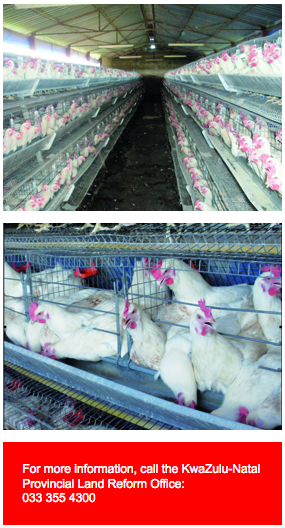 They have 7 600 laying hens and supply fresh eggs twice a week to local supermarkets in Newcastle and Madadeni, as well as the border town of Volkrust. They also bought two one-tonne light-delivery vehicles to deliver their egg orders.
They have 7 600 laying hens and supply fresh eggs twice a week to local supermarkets in Newcastle and Madadeni, as well as the border town of Volkrust. They also bought two one-tonne light-delivery vehicles to deliver their egg orders.
"We would have liked to start on the crop production side, but since we only have one tractor to till the land, it is difficult to do so. We plan to add another tractor and buy seeds, fertlizers and other implements," said Madi.
They believe that they will be able to reduce the cost of buying
chicken feed if they could plant their own maize. By growing their own maize the farm could become more profitable.
Abattoir
They plan to expand their farming operation to include providing chicken meat in addition to eggs.
"Hopefully, when we grow we can build our own abattoir here and slaughter chicken for the fresh chicken market and do some processing as well."
They also plan to start with pig farming soon and have already bought a boar and a sow.
Support and advice
Madi said the success of the egg-producing farm would not be possible without assistance, support and advice from other local neighbouring commercial farmers.
"Some of the local commercial farmers are supporting us and assisting with advice. Sometimes they also help by lending us implements."
He said the provincial Department of Agriculture, Environmental Affairs and Rural Development also supported them by providing extension services and advice.
Be willing to learn
According to Madi, the reason why many farmers failed after receiving farms from government was because the new owners neglected them.
"Hard work, a willingness to learn and asking assistance from industry players such as experienced commercial farmers, will go a long way towards helping you become a successful farmer," he said.
Be energy-efficient
Be energy-efficient sadminSave it!
To raise awareness and get all South Africans on board to help save energy, government has launched the Save It! campaign. The campaign aims to promote a culture of energy efficiency in South Africa. With rising energy costs and the threat of global warming, we have to learn to use existing supplies of power more wisely to avoid a crisis.
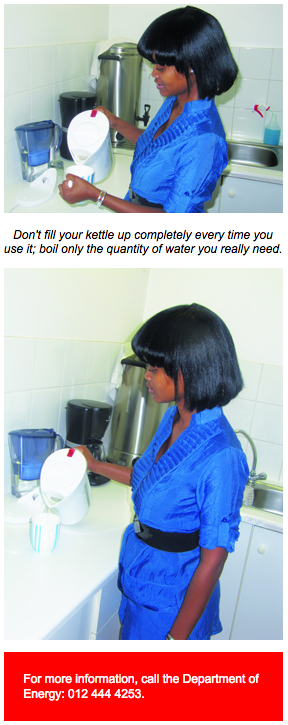 If every South African makes an effort to use less energy, we will be able to reduce the general energy demand. This means there will be more to go around and there won't be a need for power cuts. In order to achieve this, all South Africans must use energy responsibly in factories, schools, universities, offices, hospitals, hotels and at home.
If every South African makes an effort to use less energy, we will be able to reduce the general energy demand. This means there will be more to go around and there won't be a need for power cuts. In order to achieve this, all South Africans must use energy responsibly in factories, schools, universities, offices, hospitals, hotels and at home.
What is energy?
We need energy for many of our daily activities – for cooking, heating, lighting, entertainment and working.
The energy we need to perform our daily tasks generally comes from the sun and the food we eat. But there is another very important type of energy that we simply cannot do without. This energy is used to run our households, offices and factories. We need it for hot water, to cook food and operate lights, irons, washing machines, heaters, televisions, computers, power tools, industrial equipment and many more.
This kind of energy is mostly supplied to us in the form of electricity, but as the cost of power goes up and supplies decrease, we need to know all there is about energy efficiency.
Why is there a shortage of energy?
For many years, people have used fossil fuels like oil and coal for power. However these resources are finite. This means that one day they will run out. Due to the population growing and development taking place, the demand for power has increased.
Why is renewable energy important?
Renewable energy comes from natural sources that are readily available and can easily replace themselves, like the sun, wind, plant matter and geothermal heat.
There are other sources of energy such as gas and nuclear power, but they are not as kind to the environment as renewable energy.
What does it mean to be energy-efficient?
Being energy efficient means not wasting energy, using less of it to perform the same activities as before and switching over to other, cleaner sources that are kinder to the earth. Basically, it means using energy smarter.
Why is it important to save energy?
Most energy in South Africa comes from electricity, which comes from coal-fired power stations. They produce carbon emissions that are harmful to the environment. Because of the economic development that has taken place in our country, electricity demand has shot up. This means that more electricity has to be produced, which will increase carbon emissions.
But there is another way of solving this, simply use less electricity and be more energy efficient. Not only will this save our planet for future generations, it will also ensure that there is enough energy for all. So, let's all stand together and SAVE IT
Tips to save energy
Lighting
- Switch off all lights that you are not using or every time you leave a room.
- Replace your old light bulbs with CFLs (compact fluorescent lamps) or LED (light-emitting diode) lighting. They provide energy savings of up to 80 per cent and cut maintenance costs because they last six to eight times longer.
- Use low-wattage light bulbs in rooms where you don't need strong lighting.
In the kitchen
- When you cook food in the oven, do not open the door from time to time, as heat will escape and more energy will be needed to make up for it.
- Do not fill your kettle up completely every time you use it, only boil the quantity of water you really need.
- If you have a pressure cooker, use it to prepare stews, pot roasts and puddings.
- Let hot food cool off properly before you put it in the fridge or freezer, as extra power is needed to chill something that is warm.
- Empty your fridge and switch it off when you go away for a long period of time.
Other
- Some general appliances use electricity on the standby mode even when they're turned off. These are the devices that you switch off with a remote control. Although on standby mode, they use up to 50 per cent of the power they use when fully operational. This includes TVs, DVDs, home entertainment systems and computers. Be sure to switch off all these appliances at the wall.
- Geysers and space heaters generally use the most energy in a household. Geysers account for around 39 per cent of power usage, while heaters and air-conditioners use about 16 per cent. Turn your geyser down to 60˚C – this is still hot
enough for general household use. - As far as possible, shower instead of bath, as it uses far less water and electricity.
- When washing your hands or fruit and vegetables, use cold water.
- Don't let water run from the taps unnecessarily. Get into the habit of saving water and using a plug when doing washing in the basin.
- Fix leaking hot water taps, as they can easily waste up to 18 litres of water per day .
- In winter, rather dress warmly before you switch on the space heater.
- Do not switch heaters on in every room, only warm up the rooms you are using.
Libraries are fun places to learn...
Libraries are fun places to learn... sadminFun page
Did you know? South African Library Week is celebrated in March
Why are libraries important?
 Libraries offer a host of information in the form of books, mgazines and daily newspapers.
Libraries offer a host of information in the form of books, mgazines and daily newspapers.- Libraries are quiet places where you can read, do your homework, research or study for exams.
- Most libraries have computers, so if you don't have access to a computer or Internet at home you can use the computers for information and doing your school assignments.
- Not all information is available on the Internet; libraries offer much more and is free to use.
- If you can't afford to buy the books you want to read, you can borrow them from your library; most books are not available for free on the Internet.
- In libraries there are people who can help you find the information you are looking for.
- Many libraries offer fun activities for children during school holidays
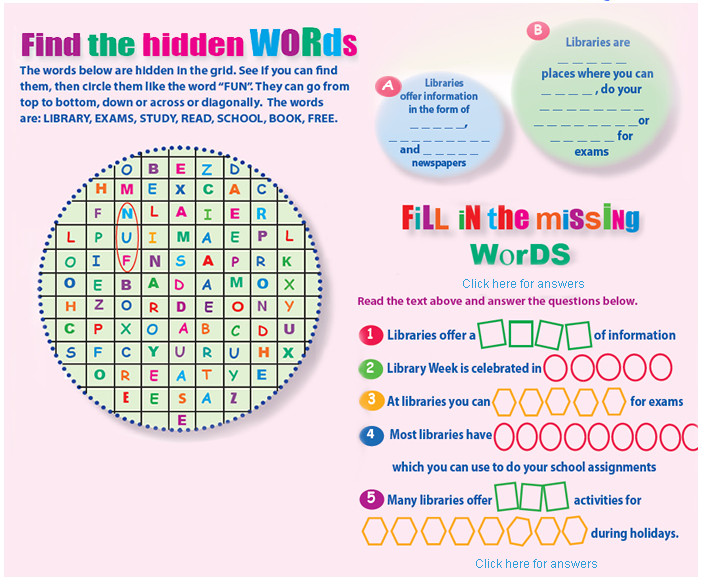
PLEASE NOTE: The games on this page is not a competition. They are only for fun, so don't send your answers to Vuk'uzenzele.
Know your consumer rights
Know your consumer rights sadminDti advertorial
The Department of Trade and Industry (dti) has launched a month-long campaign aimed at educating the public about the new Consumer Protection Act. The campaign will mainly target rural areas where service providers take advantage of consumers by rendering poor services or selling harmful products.
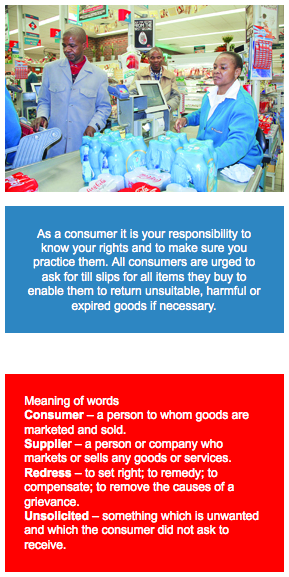 Consumers, especially in rural areas, lack information about their rights. The Consumer Protection Act (Act No 68 of 2008) will take effect from 1 April. It will be implemented by a body called the National Consumer Commission.
Consumers, especially in rural areas, lack information about their rights. The Consumer Protection Act (Act No 68 of 2008) will take effect from 1 April. It will be implemented by a body called the National Consumer Commission.
The focus of the campaign will be on the rights of consumers to:
- cancel or renew a fixed-term agreement;
- cancel direct marketing contracts within the cooling-off period;
- give effect to the consumer's right to stop the use of their information for direct marketing purposes;
- choose or examine goods, even after it has been bought and delivered;
- return goods and seek redress for unsatisfactory services (to set a situation right or to compensate for damages or bad service);
- keep and not pay for unsolicited goods or services (unwanted goods that the consumer did not ask for); and
- cancel advance reservations.
There is currently a shortage of consumer courts in most of the provinces. However, after the Act takes effect, more consumer courts will be established in all the provinces.
During the campaign, consumers will be educated on the right to choose and the right to good value and quality, which provide consumers with redress on goods and services.
The Act will also deal with shops and service providers. Suppliers of goods will be held responsible for unsatisfactory products. If suppliers are caught selling products that are not satisfactory, they may be banned from selling.
The campaign aims to ensure that consumers are able to:
- make well-informed buying decisions;
- access a wide range of products and services, based on honest and fair marketing and selling practices;
- have access to efficient and effective redress; and
- know and understand their rights and responsibilities.
Purpose of the Consumer Protection Act
Purpose of the Consumer Protection Act sadminDti advertorial
The purpose of the Consumer Protection Act is to prevent consumers from being exploited and harmed. The new Consumer Protection Act protects consumer rights in South Africa and highlights what consumers are entitled to, as well as the responsibility of suppliers of goods and services.
The main objectives of the Act are to:
- Ensure fair, competitive and responsible markets that work well for consumers and promote ethical business practices.
- To promote and protect the economic interests of consumers.
- To improve access to information that consumers require, to make informed choices according to their individual needs.
- To protect consumers from hazards to their well being and safety.
Consumers have the right to:
Equality: Businesses must not unfairly discriminate against any person based on gender, race or socio-economic status when they provide goods or services.
All consumers should be given the same treatment, access to services, prices and quality when they buy goods.
Privacy: Businesses should not supply customers with goods and services that are unwanted.
A consumer may block unwanted marketing and the business must
abide by instructions from the consumer.
Choice: For example the right to select a supplier, the right to examine goods and the right to return goods.
What are my rights as a consumer?
- The right to consumer education
Consumers must be able to acquire the knowledge and skills needed to make informed and confident choices about goods and services, while being aware of basic consumer rights and responsibilities and how to act on them. - The right to disclosure and information Consumers must be provided with the facts needed to make informed choices to ensure their protection against dishonest or misleading advertising and labelling.
- The right to choice
Consumers should be able to choose from a range of products and services, offered at competitive prices, with the assurance of satisfactory quality. - The right to representation
Consumer interests should be represented in the making and execution of government policy, and development of products and services. - The right to redress
Consumers must receive a fair settlement of just claims, including compensation for misrepresentation, or shabby goods or services. - The right to safety
From a trade and industry perspective, consumers should be protected against production processes, products and services that are dangerous to health or life. - The right to a healthy environment
Consumers should be able to live and work in an environment that is not threatening to the well-being of present and future generations.
